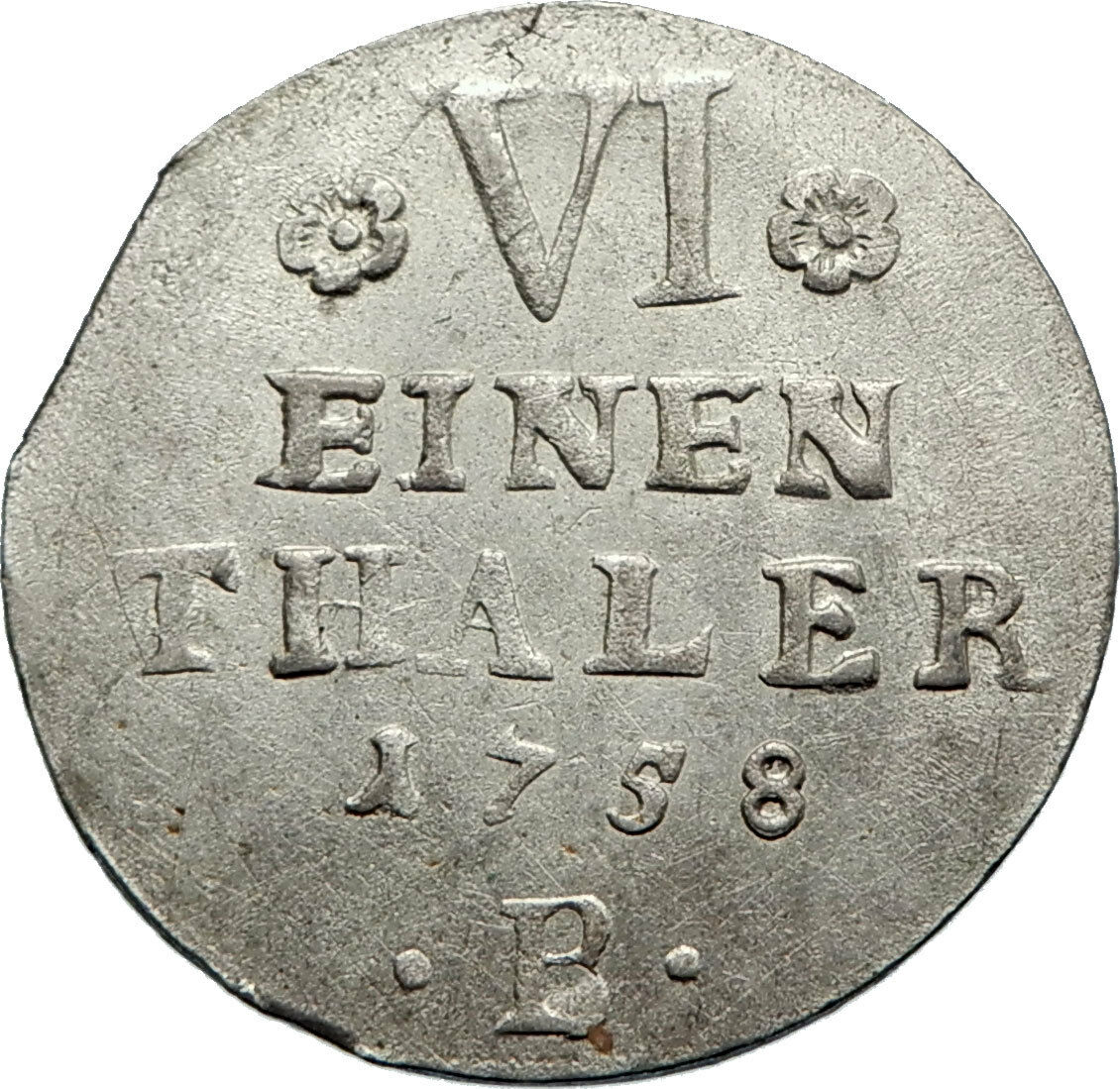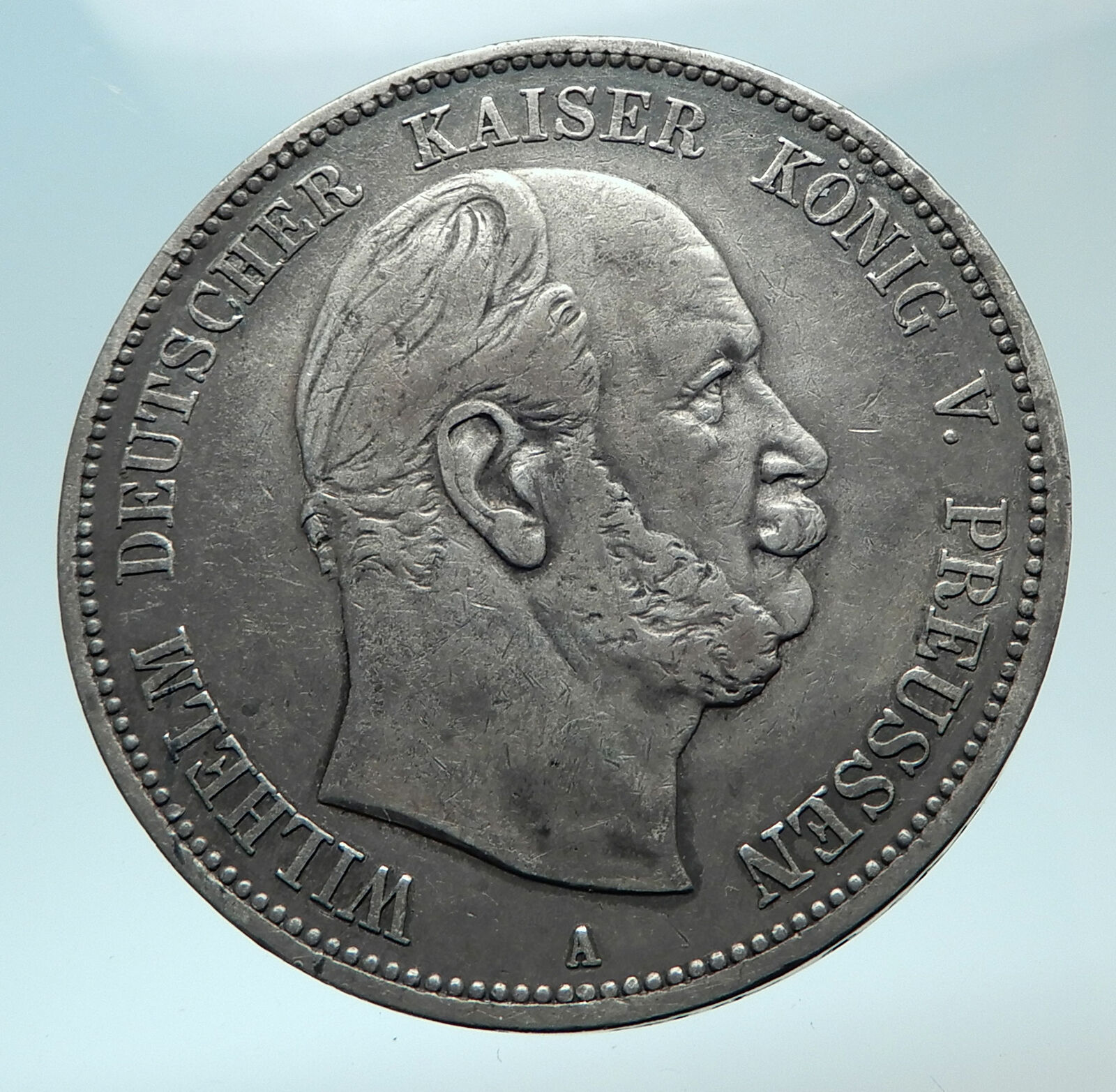|
German States – Free City of Augsburg
1534 Silver Batzen 24mm (3.92 grams)
Reference: Cf MB# 32, Forst/Schm# 11, Schult# 62
AVGVSTA . VINDELICORVM, City arms in German shield, date above.
IMP. CAES. CAROLI. AVG. V. MVNVS, Crowned imperial eagle, shield of arms on breast.
You are bidding on the exact item pictured, provided with a Certificate of Authenticity and Lifetime Guarantee of Authenticity.
 Augsburg is a city in Swabia, Bavaria, Germany, around 50 km west of Bavarian capital Munich. It is a university town and regional seat of the Regierungsbezirk Schwaben with an impressive Altstadt (city centre). Augsburg is an urban district and home to the institutions of the Landkreis Augsburg. It is the third-largest city in Bavaria (after Munich and Nuremberg) with a population of 300,000 inhabitants, with 885,000 in its metropolitan area. Augsburg is a city in Swabia, Bavaria, Germany, around 50 km west of Bavarian capital Munich. It is a university town and regional seat of the Regierungsbezirk Schwaben with an impressive Altstadt (city centre). Augsburg is an urban district and home to the institutions of the Landkreis Augsburg. It is the third-largest city in Bavaria (after Munich and Nuremberg) with a population of 300,000 inhabitants, with 885,000 in its metropolitan area.
After Neuss and Trier, Augsburg is Germany’s third oldest city, founded in 15 BC by the Romans as Augusta Vindelicorum, named after the Roman emperor Augustus. It was a Free Imperial City from 1276 to 1803 and the home of the patrician Fugger and Welser families that dominated European banking in the 16th century. The city played a leading role in the Reformation as the site of the 1530 Augsburg Confession and 1555 Peace of Augsburg. The Fuggerei, the oldest social housing complex in the world, was founded in 1513 by Jakob Fugger.
In 2019, UNESCO recognized the Water Management System of Augsburg as a World Heritage Site.
Augsburg was founded in 15 BC on the orders of Emperor Augustus. Emperor Augustus conducted extensive military campaigns and established administrative settlements. The settlement that became Augsburg was known as Augusta Vindelicorum, meaning “the Augustan city of the Vindelici”. The settlement was established at the convergence of the Alpine rivers Lech and Wertach. In 120 AD Augsburg became the administrative capital of the Roman province Raetia. Augsburg was sacked by the Huns in the 5th century AD, by Charlemagne in the 8th century, and by Welf I, Duke of Bavaria in the 11th century.
Augsburg was granted the status of a Free Imperial City on 9 March 1276 and from then until 1803, it was independent of its former overlord, the Prince-Bishop of Augsburg. Frictions between the city-state and the prince-bishops were to remain frequent however, particularly after Augsburg became Protestant and curtailed the rights and freedoms of Catholics. With its strategic location at an intersection of trade routes to Italy, the Free Imperial City of Augsburg became a major trading center.
Augsburg produced large quantities of woven goods, cloth and textiles. Augsburg became the base of two banking families that rose to great prominence, the Fuggers and the Welsers. The Fugger family donated the Fuggerei part of the city devoted to housing for needy citizens in 1516, which remains in use today.
In 1530, the Augsburg Confession was presented to the Holy Roman Emperor at the Diet of Augsburg. Following the Peace of Augsburg in 1555, after which the rights of religious minorities in imperial cities were to be legally protected, a mixed Catholic–Protestant city council presided over a majority Protestant population; see Paritätische Reichsstadt.
 Germany, officially the Federal Republic of Germany is a federal parliamentary republic in western-central Europe. It includes 16 constituent states and covers an area of 357,021 square kilometres (137,847 sq mi) with a largely temperate seasonal climate. Its capital and largest city is Berlin. With 81 million inhabitants, Germany is the most populous member state in the European Union. After the United States, it is the second most popular migration destination in the world. Germany, officially the Federal Republic of Germany is a federal parliamentary republic in western-central Europe. It includes 16 constituent states and covers an area of 357,021 square kilometres (137,847 sq mi) with a largely temperate seasonal climate. Its capital and largest city is Berlin. With 81 million inhabitants, Germany is the most populous member state in the European Union. After the United States, it is the second most popular migration destination in the world.
 Various Germanic tribes have occupied northern Germany since classical antiquity. A region named Germania was documented before 100 CE. During the Migration Period the Germanic tribes expanded southward. Beginning in the 10th century, German territories formed a central part of the Holy Roman Empire. During the 16th century, northern German regions became the centre of the Protestant Reformation. Various Germanic tribes have occupied northern Germany since classical antiquity. A region named Germania was documented before 100 CE. During the Migration Period the Germanic tribes expanded southward. Beginning in the 10th century, German territories formed a central part of the Holy Roman Empire. During the 16th century, northern German regions became the centre of the Protestant Reformation.
The rise of Pan-Germanism inside the German Confederation resulted in the unification of most of the German states in 1871 into the Prussian-dominated German Empire. After World War I and the German Revolution of 1918-1919, the Empire was replaced by the parliamentary Weimar Republic. The establishment of the Third Reich in 1933 led to World War II and the Holocaust. After 1945, Germany split into two states, East Germany and West Germany. In 1990, the country was reunified.
 In the 21st century, Germany is a great power and has the world’s fourth-largest economy by nominal GDP, as well as the fifth-largest by PPP. As a global leader in several industrial and technological sectors, it is both the world’s third-largest exporter and importer of goods. Germany is a developed country with a very high standard of living sustained by a skilled and productive society. It upholds a social security and universal health care system, environmental protection and a tuition free university education. In the 21st century, Germany is a great power and has the world’s fourth-largest economy by nominal GDP, as well as the fifth-largest by PPP. As a global leader in several industrial and technological sectors, it is both the world’s third-largest exporter and importer of goods. Germany is a developed country with a very high standard of living sustained by a skilled and productive society. It upholds a social security and universal health care system, environmental protection and a tuition free university education.
Germany was a founding member of the European Union in 1993. It is part of the Schengen Area, and became a co-founder of the Eurozone in 1999. Germany is a member of the United Nations, NATO, the G8, the G20, and the OECD. The national military expenditure is the 9th highest in the world. Known for its rich cultural history, Germany has been continuously the home of influential artists, philosophers, musicians, sportsmen, entrepreneurs, scientists and inventors.
|





 Augsburg is a city in Swabia, Bavaria, Germany, around 50 km west of Bavarian capital Munich. It is a university town and regional seat of the Regierungsbezirk Schwaben with an impressive Altstadt (city centre). Augsburg is an urban district and home to the institutions of the Landkreis Augsburg. It is the third-largest city in Bavaria (after Munich and Nuremberg) with a population of 300,000 inhabitants, with 885,000 in its metropolitan area.
Augsburg is a city in Swabia, Bavaria, Germany, around 50 km west of Bavarian capital Munich. It is a university town and regional seat of the Regierungsbezirk Schwaben with an impressive Altstadt (city centre). Augsburg is an urban district and home to the institutions of the Landkreis Augsburg. It is the third-largest city in Bavaria (after Munich and Nuremberg) with a population of 300,000 inhabitants, with 885,000 in its metropolitan area. Germany, officially the Federal Republic of Germany is a federal parliamentary republic in western-central Europe. It includes 16 constituent states and covers an area of 357,021 square kilometres (137,847 sq mi) with a largely temperate seasonal climate. Its capital and largest city is Berlin. With 81 million inhabitants, Germany is the most populous member state in the European Union. After the United States, it is the second most popular migration destination in the world.
Germany, officially the Federal Republic of Germany is a federal parliamentary republic in western-central Europe. It includes 16 constituent states and covers an area of 357,021 square kilometres (137,847 sq mi) with a largely temperate seasonal climate. Its capital and largest city is Berlin. With 81 million inhabitants, Germany is the most populous member state in the European Union. After the United States, it is the second most popular migration destination in the world. Various Germanic tribes have occupied northern Germany since classical antiquity. A region named Germania was documented before 100 CE. During the Migration Period the Germanic tribes expanded southward. Beginning in the 10th century, German territories formed a central part of the Holy Roman Empire. During the 16th century, northern German regions became the centre of the Protestant Reformation.
Various Germanic tribes have occupied northern Germany since classical antiquity. A region named Germania was documented before 100 CE. During the Migration Period the Germanic tribes expanded southward. Beginning in the 10th century, German territories formed a central part of the Holy Roman Empire. During the 16th century, northern German regions became the centre of the Protestant Reformation. In the 21st century, Germany is a great power and has the world’s fourth-largest economy by nominal GDP, as well as the fifth-largest by PPP. As a global leader in several industrial and technological sectors, it is both the world’s third-largest exporter and importer of goods. Germany is a developed country with a very high standard of living sustained by a skilled and productive society. It upholds a social security and universal health care system, environmental protection and a tuition free university education.
In the 21st century, Germany is a great power and has the world’s fourth-largest economy by nominal GDP, as well as the fifth-largest by PPP. As a global leader in several industrial and technological sectors, it is both the world’s third-largest exporter and importer of goods. Germany is a developed country with a very high standard of living sustained by a skilled and productive society. It upholds a social security and universal health care system, environmental protection and a tuition free university education.




